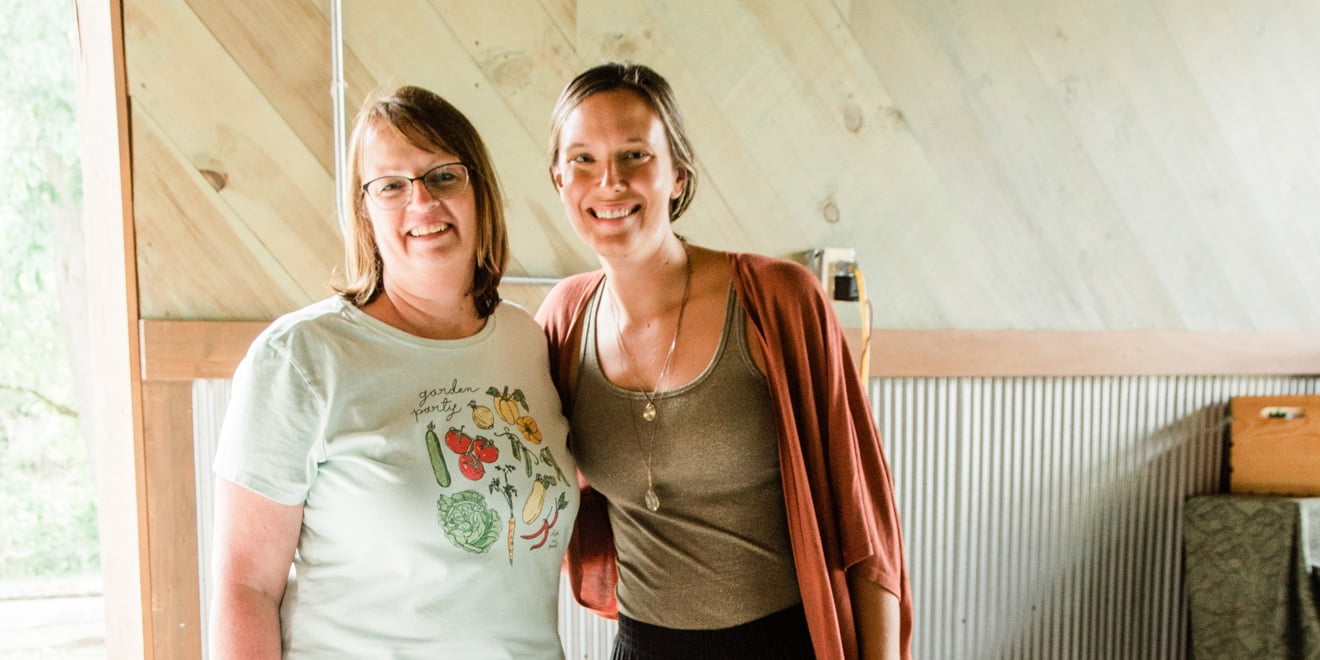Holly Kolarova is an ESL (English as a Second Language) and Special Education teacher at Clear Creek Elementary School in Henderson County. Holly is part of the 2023–24 Kenan Fellows Program for Teacher Leadership, which connects outstanding educators with mentors, creating opportunities and relationships to help students understand how STEM concepts apply in the real world. Danielle Raucheisen, ASAP’s Growing Minds Program Director, served as Holly’s mentor.
What did you learn from your Kenan Fellowship experience? How do you use these lessons within your work now?
Before the Kenan Fellowship, I did not implement farm to school activities with my students nor had I heard of the Growing Minds program, yet alone ASAP. Through the fellowship, I was able to learn about all of the programs that ASAP promotes and discovered resources for teachers, such as grants, literature, kitchen supplies, lesson plans, and so much more! This new awareness encouraged me to seek out other agencies in the area that could also be utilized that I hadn’t considered before. The Kenan Fellowship gave me the courage and opportunities to try new experiences.
What are some of the ways you are making farm to school part of professional development for teachers at your school?
Just recently, Growing Minds staff Danielle Raucheisen and Suzi Pallidino presented their curriculum for “I Tried Local…” to our kindergarten and first grade teachers at Clear Creek Elementary. The teachers were provided with the printed curriculum as well as seeds, and the supporting picture books. The teachers were very excited to have this training!
I plan to give a professional development lecture with teachers throughout the county in August, as the teachers are coming back to school, to promote farm to school activities in their classrooms. Hopefully, this will coincide with a mini farm tour for the teachers as well!
What are some of the farm to school projects your students have worked on?
Last fall we placed a carved pumpkin, seeds still intact, in soil and sealed in a plastic jar to watch and learn about decomposition. We are still observing “Pumpkin Jack,” as the seeds are beginning to germinate now.
This spring, my students made gardens in a glove. We put a seed in each finger of a clear glove and watched tomato, lettuce, corn, broccoli, and cucumber seeds germinate. We have planted marigold seeds and placed them under our newly acquired grow lights and warming beds. Hopefully, they will be ready for Mother’s Day.
Another project we are working on is making terrariums out of clear milk jugs as milkweed starters. We will transplant them into a newly created pollinator garden that complements our monarch butterfly units. On May 2, Home Depot will come out and build 10 raised beds with soil, as well as 20 pressure-treated picnic tables with umbrellas, so that our pre-K through first grade classrooms will have outdoor experiential learning opportunities.
As I become more familiar with the farm to school curriculum, I hope to introduce more resources and lessons to my students. Perhaps I will be brave enough to try cooking with my students next year!
Describe your connection with Bee-utiful Farm and Garden. How are the students working with the farm?
As a volunteer for ASAP’s Farm Tour [last September], I was assigned to Bee-utiful Farm and Garden. I enjoyed getting to know the family and was surprised that the farm is so close to my own home. During the tour, I learned that their eggs were incorporated into the 4-H poultry lessons our second graders participated in. Our fifth graders were able to see Bee-u-tiful Farm do a beekeeping presentation at an Agriculture Awareness Program in April. Hopefully, with support from a Growing Minds grant, our classrooms will do a farm tour with Bee-utiful this fall.
Have you noticed any ways a farm to school curriculum has changed your students’ perspectives?
When I introduced the students to a lesson plan from Growing Minds, my students hugged me and told me that I was the “best teacher in the world.” Now, before and after each lesson, they want to check on their plants to see their progress. My students are having fun and not really realizing that they are learning.

